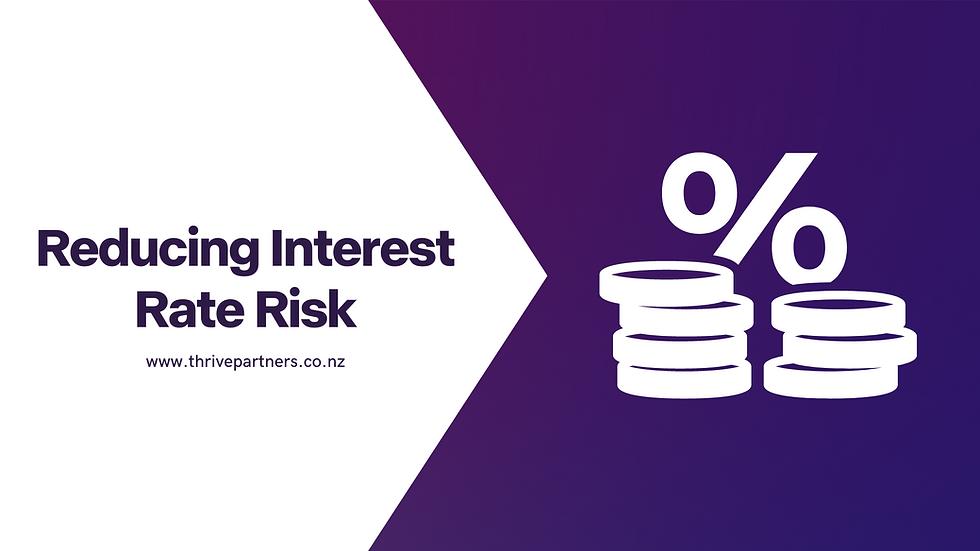The Economics of Competition: How It Shapes Property Investment in New Zealand
- Ryan Smith
- Apr 11, 2023
- 4 min read
Updated: Aug 5, 2025
Competition is one of the most powerful forces in economics. It drives prices, shapes markets, and impacts the decisions businesses (and investors) make every day.
To understand competition in a simple way, think back to the game Monopoly. When one player owns all the properties, they dominate the board. But if ownership is spread out, the game becomes far more competitive.
This same principle applies throughout the real economy - from petrol providers to banks, and yes, even the property market.
Let’s break down how competition works in business and how it directly affects property investors in New Zealand.
Competition in Business: The Petrol Station Example
When you drive through town, you’ll notice that petrol stations rarely differ significantly in price.
Why?
Because:
If one company undercuts too much, it attracts more customers but risks lower profit margins
If they overprice, they lose market share to competitors
This balancing act is competition in action. Companies operate within a range that allows them to stay profitable without losing customers.
How Competition Impacts Banks and Interest Rates
Banks operate in a similar competitive environment. They earn profits through their “net interest margin” - the difference between what they earn on loans and what they pay for funding.
Here’s how it works:
Banks want to charge high interest rates to maximise profits
But if their rates are too high, customers go to competitors offering lower rates
This competition forces rates to remain relatively close across different banks
The Reserve Bank of New Zealand (RBNZ) also influences this through the Official Cash Rate (OCR):
When the OCR is low, borrowing is cheaper to stimulate spending and investment
When the OCR is high, borrowing costs rise to slow inflation and encourage saving
For property investors, this means interest rates fluctuate in response to both competition and monetary policy.
How Banks Use Competition to Win Business
At times, banks actively compete for market share by offering discounted home loan rates even below “market price.”
Examples include:
Discounted floating rates
Reduced fixed 1-year rates
Special promotional lending offers
When banks launch these deals, savvy investors can lock in cheaper lending and boost their returns.
Competition in the Property Market: Vendors & Developers
Competition also plays out among vendors and developers.
In a hot market, sellers hold power, and prices rise due to high demand
In a soft market (like during economic downturns), sellers must drop prices to attract buyers, even if it means slimmer profit margins
Because vendors operate on a smaller scale than banks, their pricing flexibility is greater. This creates opportunities for investors to negotiate better deals, especially if they work with experienced:
Real estate agents
Financial advisors
Buyers’ agents
These professionals often have access to off-market properties and can negotiate discounts that aren’t publicly advertised.
How Investors Can Leverage Competition to Their Advantage
For property investors, periods of economic slowdown, where interest rates are higher but prices soften, often present the best buying opportunities.
If you can secure an undervalued property and access competitive bank lending deals,
your long-term returns can significantly outperform those who buy in hot, overpriced markets.
Final Thoughts: Why Competition Is Your Friend in Property Investment
Understanding competition in business, whether between petrol stations, banks, or property vendors, helps investors see how market dynamics create opportunities.
At Thrive Investment Partners, we help our clients navigate interest rates, bank lending competition, and property pricing to uncover the best possible investment options, even in challenging markets.
How Can We Help You?
We help Kiwis build wealth through property investment. Our advisors will take the time to understand your individual needs and recommend suitable investment properties to help you build wealth and set up your retirement.
What Does This Look Like?
We use a 3-step process:
We start with a Discovery Meeting where we learn about you, your goals, etc., and you learn more about us.
This is followed by a Strategy Meeting where we model your retirement plan, understand key investment concepts, and briefly touch on some investment choices.
Finally, an Asset Selection Meeting where we discuss investment options in more detail and make any recommended adjustments based on what we now know about you.
Who Are We Right For?
We help people make smart investment choices and set up their futures. From first-time investors to experienced investors, we can cater to a wide range of people and help set up their futures through research-based property investment.
How Much Does It Cost?
Our advice is free to you! If you choose to invest, we’re paid by the property developer. This developer-paid model allows us to provide no-obligation property investment advice in New Zealand, without charging clients directly.
What Do We Do, And What Don't We Do?
What We Do
We offer end-to-end New Zealand property investment advice, helping Kiwi investors grow wealth through smart, data-led decisions. Our focus is on quality new builds in strong locations, tailored to your goals, guided by a team that knows the NZ market inside out.What We Don’t Do
We don’t do KiwiSaver, shares, cryptocurrency, or broad financial planning. Thrive is not a generalist firm. We specialise in property investment in New Zealand because that’s where we deliver the most value. By staying focused, we cut through the noise and help our clients make confident, well-informed property investment decisions.
How Do I Start?
Start the process now by booking a time to talk with our advisor by clicking here.







Comments